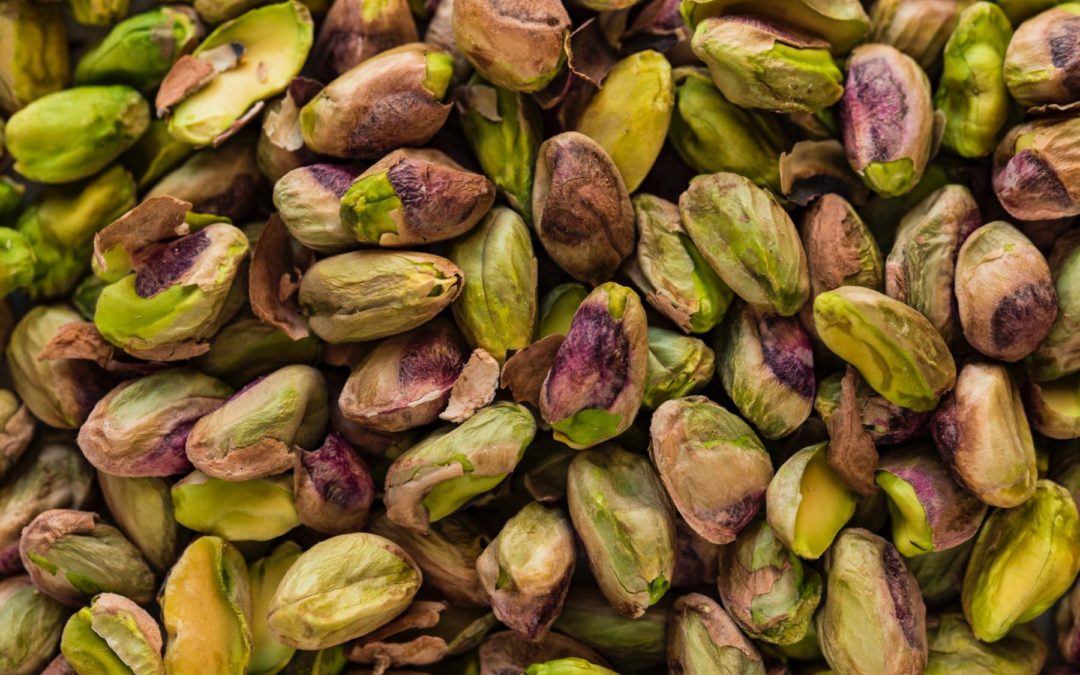February is American Heart Month, which is a great reminder each year to check in with yourself and ensure that you’re doing all that you can to keep your heart healthy. Many people assume that they’d never personally be affected by heart disease; however, you might be surprised by how common it is. A report issued by the American Heart Association last week found that 48% of American adults have some form of heart disease.
That’s pretty serious and very scary news. But the great news is that we all have the power to lower our risk for heart disease through diet changes and other lifestyle modifications. Sometimes, this means eating a little less of foods that are high in saturated fats, salt, or refined sugar. However, certain foods can help you to improve your heart health. I had the chance to visit Margie Ellisor at STLMoms on Fox2Now yesterday to discuss some of my favorites. Here’s a recap.
Pistachios
Are you nuts for pistachios? They and other nuts are thought to protect against heart disease when they’re part of a diet low in saturated fat and cholesterol.
Studies suggest that 1.5 ounces of nuts eaten most days can help lower your heart risk. The reasons for this aren’t exactly known; however, it’s possible that the combination of heart healthy mono- and poly-unsaturated fats and fiber can reduce levels of LDL (“bad”) cholesterol in the blood.
So if many types of nuts are good, why do I love pistachios?
1. They’re a great source of plant protein, coming in at 6 grams per serving. This may help you from overeating.
2. They have built-in portion control! In one study, volunteers ate 41% fewer calories (on average) when they chose shell-on pistachios compared to ones that have been shelled. This may be because the shell provides a visual cue for how many nuts have been eaten, or because the shells force a slower eating pace.
Pistachios are great for a snack, but also as toppings for salads, dips, and yogurts. We also love these pistachio squares, if you’re craving something sweet.
Potatoes
Potatoes get a bad rap, but they can be a very heart healthy food. They’re one of the best and most affordable sources of potassium in the diet. One large baked potato provides 34% of the daily recommended level of potassium. Studies suggest that a potassium-rich diet helps lower blood pressure, yet few of us get enough. One very large study found that only 2% of Americans eat enough potassium in a day.
There’s a catch though—you negate the health benefits if you deep fry those potatoes and cover them in salt and high-fat toppings. Bake or steam your potatoes (or try this soup!), and eat this skin. The skin contains not only potassium but also fiber, which can help lower blood cholesterol.
Chickpeas
Like potatoes, chickpeas (also called garbanzo beans) are high in potassium. They’re also high in soluble fiber, which you may recall help lower blood cholesterol. Because they’re high in protein, chickpeas are a good substitute for those looking to lower their meat consumption.
One of my favorite ways to enjoy them is crispy chickpeas. They’re easy to make—rinse a can of chickpeas in a colander for 2 minutes, then let them drain for 10 minutes (this lowers the sodium content of canned beans by up to 41%). Let them dry completely, and then spray them with olive oil spray. Roast them for 30 minutes at 400, or cook them in an air fryer! Once they’re crispy, you can toss them in your favorite seasonings, and then use them to top your salads or soups.
Do you eat these foods regularly? What are your favorite heart healthy foods?

